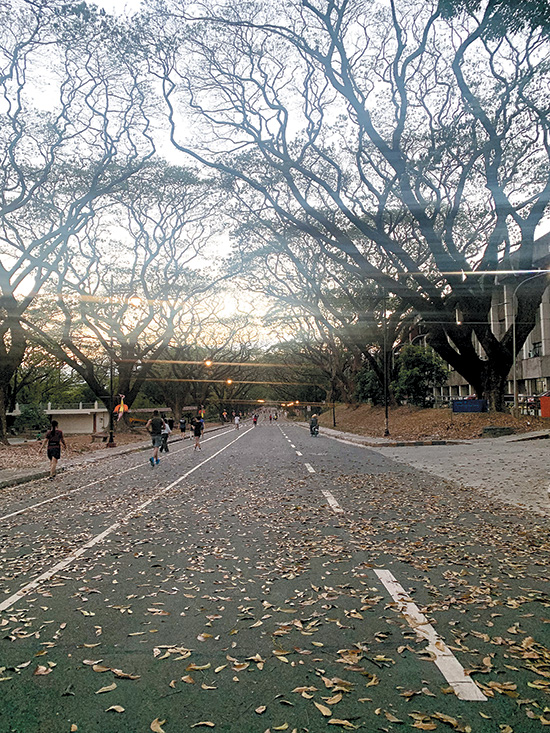The world is slowly relaunching — with companies now requiring their employees to spend more work hours in the office instead of at home, and as schools resume face-to-face classes.
Before, public spaces were empty. But these days, crowds fill the streets in rallies and sorties of election candidates while previously canceled concerts are pushing through.
Progress may be slower than expected as our idea of “back to normal” alters constantly, but we’re all still eager to reclaim whatever was postponed for far too long due to the severity of the pandemic; whether it be gatherings, trips, or simply ordinary day-to-day activities.
In other words, we no longer want to sulk or reminisce too much about the life that once was, but instead, we just want to make the days of this year and the coming years count, by filling them substantially with valuable moments and by slowly doing the things we used to do — if only to attain a sense of normalcy.
As for me, a resident of Diliman, which means I live near the campus, green spaces have been a big part of my pre-pandemic life since childhood.

I’ve spent birthdays picnicking with family and friends at the U.P. Oval’s Amphitheater, and I learned to bike at the Science Complex — a grassy space in the center of the Science colleges of the university. This is why, naturally, nature-abundant areas are what I crave during this time; and I know that others share the same yearning.
Throughout the pandemic, I’ve seen a lot of families spending time in the university’s green spaces to experience nature; so much so that my mother and I would always have to explore other grassy areas to avoid the crowds.
Importance of green spaces
This only proves how much we’ve come to realize the importance of green spaces and how crucial they are to our mental health. Being cornered at home for too long, we now see nature differently; and cherish a little more, every sunset, picnic, or chance to see the sea or mountains.

I recently started biking alone to the Sunken Garden, a popular field in U.P. that shrinks a couple of inches every year. Not so long ago, my father and I would fail at our attempts to eat in the (ironically empty) field, as authorities would gently lead us out due to protocols. We would drive by and the grass would be so tall, the field almost appeared flat instead of concave. Now, collegians are back to play frisbee, and athletes from other schools make use of the space. Bikers either come in squads or alone, and young people can be seen lounging — some with their partners, eager to spend time together again.
It’s a familiar scene, and except for the sight of face masks and the invisible yet present bubble every family or group has around themselves, it looks more or less similar to how the field looked like prior to the pandemic.
Aside from the campus, there are many other places to visit to get a piece of nature. Consider driving, or even biking–as many cycler groups do these days–to Rizal, to see its breathtaking views. Opt to either join an organized hike with other people, visit the province’s falls and river streams, or book a relaxing stay.
Regardless of the place, it is being present that matters. As we experience more vibrancy and worldliness, let’s not forget how nature took care of us during this time, and be better stewards in gratitude.
* * *
Isabel Longid just turned 15. She loves to bike, skate and write.
